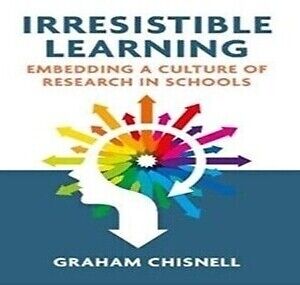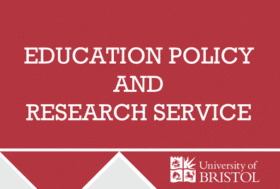The impact of racism on children’s mental health


Dr Verity Jones, Dr Chris Pawson, Dr Tessa Podpadec, Luci Gorell Barnes, Dr Sarah Whitehouse, Justin Vafadari
University of the West of England, Bristol, UK
This case study relates to research with 9-11 year olds. The project was funded by the mental health charity, Emerging Minds, and had ethical clearance from the University of the West of England’s (UWE) Ethics Committee. The interdisciplinary team of researchers sought to explore young people’s experience of racism and its impact on mental health in order to develop and inform teacher training programmes. This case study draws out evidence from the larger project to highlight how racism (considered here as a form of bullying) resulted in feelings of loneliness and impacted mental health and wellbeing.
The context
Racial inequality is embedded in the UK’s education system, with incidents of racist bullying being widespread across schools (Joseph-Salisbury, 2020). However, young people’s experiences of racism in the UK are most commonly reported in research with pupils at secondary school age and above (12+ years). The impact of racism on younger children’s mental health and wellbeing has been consistently overlooked in research in the UK.
There are a number of ways in which experiences of racism might impact primary school children’s mental health. Our research was focused on how experiences of witnessing or being the target of prejudice and discrimination might be distressing, and how these experiences and exposure to institutional racism might impact a child’s longer-term view of themselves and the world around them. We were keen to understand how racism might have shaped children’s identities and beliefs about their self-worth, as well as how negative social interactions might shape how they interpret future interactions and what they come to expect of people around them.
This project worked with young people in three inner city schools in Bristol. All participants in focus groups bar one identified as being black, Asian or belonging to another ethnic minority. The research team were predominantly white and welcomed the expertise of an advisory group from the community to inform practice and analysis of data.
The approach
The project used a creative, arts-based approach that allowed young people to reflect on their own lived experiences of racism in their own way. The activity was open ended in that the children were not asked to reach any sort of consensus or solution.
Each class of around 30 learners took part in a 45 minute workshop led by a socially engaged artist. A definition of racism and a ‘feelings’ word bank were co-created with the young people before introducing the idea of body mapping. Here, children used large pieces of paper and drew around each other to create a life-size outline of themselves. Once the children had their outline to work with, the team supported them to think about how external events around racism made them feel inside, recording these in the parts of their body outline where they experienced the feelings. The groups were encouraged to choose notation they felt happy with, including: images, symbols, words, emojis and colour codingIn qualitative research, coding involves breaking down data ... More, to show external forces, internal impacts and their different emotions. Young people were prompted to think about different kinds of racism, giving examples of covert racism, and uncomfortable situations in which they might be unsure if the event was racist or not. Children were asked if they felt comfortable to discuss racism with a white person, and with whom they would choose from their own lives to discuss their distress about racism. The maps acted as a space through which ideas could be articulated and understood. At the end of the session, children were invited to share their thoughts and ideas with each other. Workshops were observed by members of the research team. Following the workshop, groups of six to eight children took part in focus group discussions to reflect on their experiences, and teachers were interviewed.
Findings
Children recognised that racism was a form of bullying. As participants commented:
-
When you have a different colour to someone they will bully you because of it
-
It’s as if white people are loved more
This feeling of being different from others was experienced in multiple contexts and with multiple groups. The children talked about experiencing racism at home, when out and about and in school. They experienced racism from within their family, between friends and from strangers, known adults (including teachers) and children:
-
From my Dad’s family, they kind of just didn’t want to see me because I was mixed
-
It was when I was outside. One of them [white] people just said N word to me
-
A girl in my class said that my skin colour was like mud
Children would often comment that they weren’t sure if what they were experiencing was racism, but they recognised that what was going on made them experience a host of emotions including feeling uncomfortable, sad, anxious and angry.
Children commented that the way in which children and adults talked to them made them feel like they didn’t fit in and so they had to make changes. These changes included the way they did their hair, what they ate and what clothes they wore. Changes to presentation of self were made to fit in with the predominant white culture:
-
Some people in my old school and sometimes teachers, they wouldn’t make fun of me for it, but they would make comments that made me feel quite like unproud of my hair. And so I had to start plaiting it and making it a bit smaller
-
I had to start doing my hair a different way because I used to wear like, a giant bun up here when it was out. And then I used to get made fun of it. And they used to like take it out and everything
-
When I go to my old school I wouldn’t, I really wanted to wear my turban. But my parents would say don’t wear your turban because people might make more fun
Similarly, children spoke of feeling uneasy in certain places due to the way in which people treated them on the basis of their colour. This included the local shops, routes to school and the park:
-
I feel uneasy about going out and knowing that your kind is getting like targeted by other people because of your race, culture or religion
-
Some people might not like you or your kind. So you have to be like, more aware
In interviews with teachers racist bullying was often framed as perpetrators did not have knowledge to do otherwise. By framing the perpetrator as being ‘only’ a child without the knowledge or awareness required to act differently diminished the significance of the perceived racism. As teachers commented:
-
Because they are after all children, and they’re still learning about the world
-
The child doesn’t know what it means
Teachers were also found to sometimes discount children’s perspectives of a racial incident:
-
When he becomes upset there’s no racial component to it. He will complain of feeling excluded from things
Children indicated that they felt the response to racist incidents in school was often not appropriate:
-
At my old school, whenever I got bullied, like seriously, the head teacher would just do an assembly and wouldn’t do something like suspend, just give them a reflection or something. And I felt really angry about that
How do children cope with racism?
The study found that children often isolated themselves as a result of racism. They frequently talked about how they would not tell teachers about incidents:
-
I don’t feel comfortable saying it, cause sometimes I think of something and then I’ll regret it, so I don’t really like saying things out loud
-
I just keep it all in there… I don’t like saying about stuff
This appeared to be driven by concerns that an adult’s response is often undesirable:
-
Sometimes we’ll do lessons on like how you’re feeling, some people like to lie so the teachers don’t make a big deal out of it
-
I won’t tell the teacher because I feel like the teacher will go and tell all the other teachers in your year group and your parents
-
In my opinion, adults say, oh, talk to an adult if you like feel upset. I think, to be honest it’s more uncomfortable talking to an adult because like you feel scared of what they’re going to say, of what their opinion is
Children’s strategies to cope alone
Children indicated that they possessed a range of coping strategies, many of which were entirely independent of engagement with others or sharing their experiences (NB: Unfortunately, some are likely to result in contributing to the opacity of their experiences):
-
Screaming into a pillow – when I’m around people I wouldn’t want to show my anger. Then when I go home then I’m in bed and lay it all out
-
If I write it on a piece of paper then most many people can’t hear it
-
I live in a flat, I have this stool. And I take a cup of water, I go and kneel on my stool, I look out of the window cos it’s like a really nice view, and I drink my water as I do that and I found that really calm
-
I would close my door and try and lock it and then just like go under the covers and just have my own time for a while
-
I just read the Quran, just you feel calm, just the copy I have, and I just sit in my bedroom
-
Video games… I play a lot, to the point that I forget my surroundings and just focus on my game to the point where it’s bedtime
-
Drawing, sketching, anime, and things like that. It makes me feel happy and safe with my own characters
-
I just take my dog on a walk
Recommendations
We found evidence of psychological impact arising from experiences of racism among children. The children we spoke to were acutely aware of the prevalence of racism around them. With this in mind, it was unsurprising that children talked about anxiety and a need for vigilance, as well as a certain helplessness: responses that teachers were apparently unaware of. This helplessness is potentially exacerbated by what appeared to be children’s perception that responses to racism were often absent, unclear, or ineffective. We recommend that schools should:
- acknowledge that there are multiple experiences of racism at a range of levels and that these can be triggered by local, national and international events
- acknowledge that children’s experiences of racism are not always disclosed, but do have a psychological impact
- provide ongoing explicit training for powerful and emotive discussions with children about racism
- revisit the theme of racism regularly throughout the school year and not as a reactive measure to an incident in school or the media
- acknowledge that despite the sensitive nature of discussions about racism, these discussions can be very powerful for children, and children welcome it
- ensure that teachers recognise their positionalityPositionality refers to what we know and believe. It relates... More and journey towards allyship.
Recommended reading
More information can be found on the project’s website, where a full report of the above will soon be available.
Reports by the Runnymede Trust









